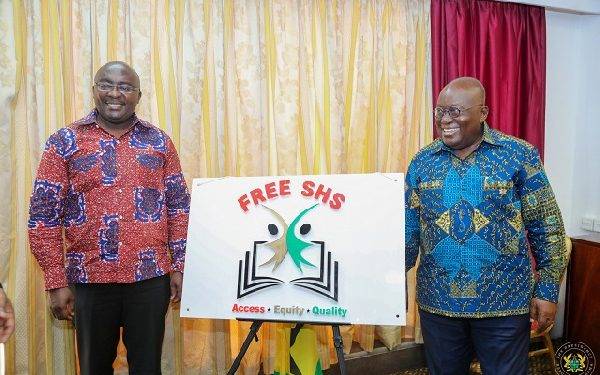Africa Education Watch (EduWatch), a prominent education-focused think tank, has urged Ghana’s Parliament to hold off on passing the Free Senior High School (Free SHS) Bill until extensive consultations with relevant stakeholders are conducted. The Free SHS Bill, scheduled for presentation in Parliament on December 16, 2024, is designed to give legal backing to the government’s flagship policy of free and compulsory education at the Senior High School level.
EduWatch raised concerns about the lack of comprehensive stakeholder engagement in the drafting process, emphasizing the need for inclusivity and transparency in formulating policies that significantly impact Ghana's education system. The organization noted that meaningful input from education experts, civil society organizations, parent-teacher associations, and development partners is crucial to ensuring the Bill reflects a broad consensus and addresses potential gaps.
In a statement released on December 13, EduWatch appealed to the Minister of Education, Dr. Yaw Osei Adutwum, to convene consultative meetings that bring together key players in the education sector. The group believes these discussions will lead to a stronger, more universally accepted policy.
"We call on Parliament to defer deliberations on the Bill until consultations are held. In the spirit of inclusive policy governance, we urge the Minister of Education to engage education Civil Society Organizations, development partners, parents, and teachers to enrich the Bill," the statement said.
EduWatch’s call for dialogue comes as the Free SHS policy, launched in 2017, continues to shape Ghana’s educational landscape. While the initiative has expanded access to secondary education for thousands of students, it has faced criticism over issues like inadequate infrastructure, insufficient teaching resources, and questions about its long-term sustainability.
The proposed Free SHS Bill seeks to codify the policy into law, ensuring its continuation beyond the current administration. However, EduWatch argues that enshrining the policy in law without addressing its operational challenges would be counterproductive.
Stakeholders such as civil society organizations have expressed similar concerns, highlighting the need for a collaborative approach to policymaking. By engaging all relevant parties, EduWatch believes the government can create a more comprehensive framework that addresses the financial, logistical, and administrative hurdles associated with the Free SHS program.
The think tank’s stance is also informed by international best practices, where successful education policies are often the result of broad-based consultations. EduWatch has pointed out that transparency and accountability are key to fostering public trust and ensuring the efficient use of resources.
Additionally, the organization emphasized that stakeholder engagement would not only enhance the policy’s credibility but also secure its sustainability. A policy that reflects the collective input of experts and citizens is more likely to


